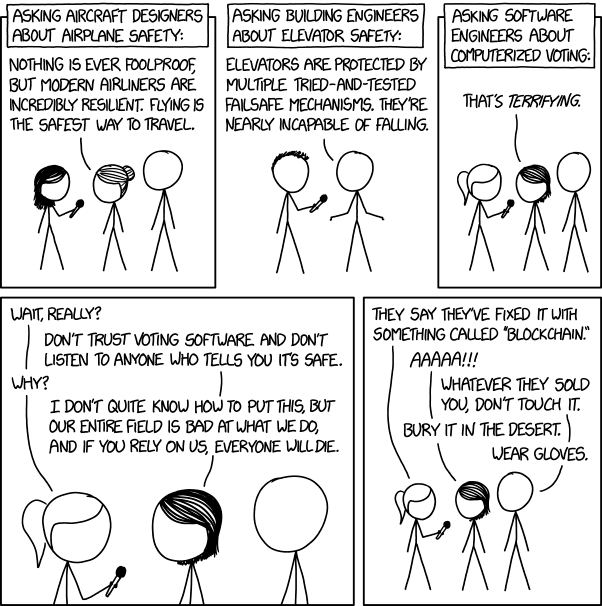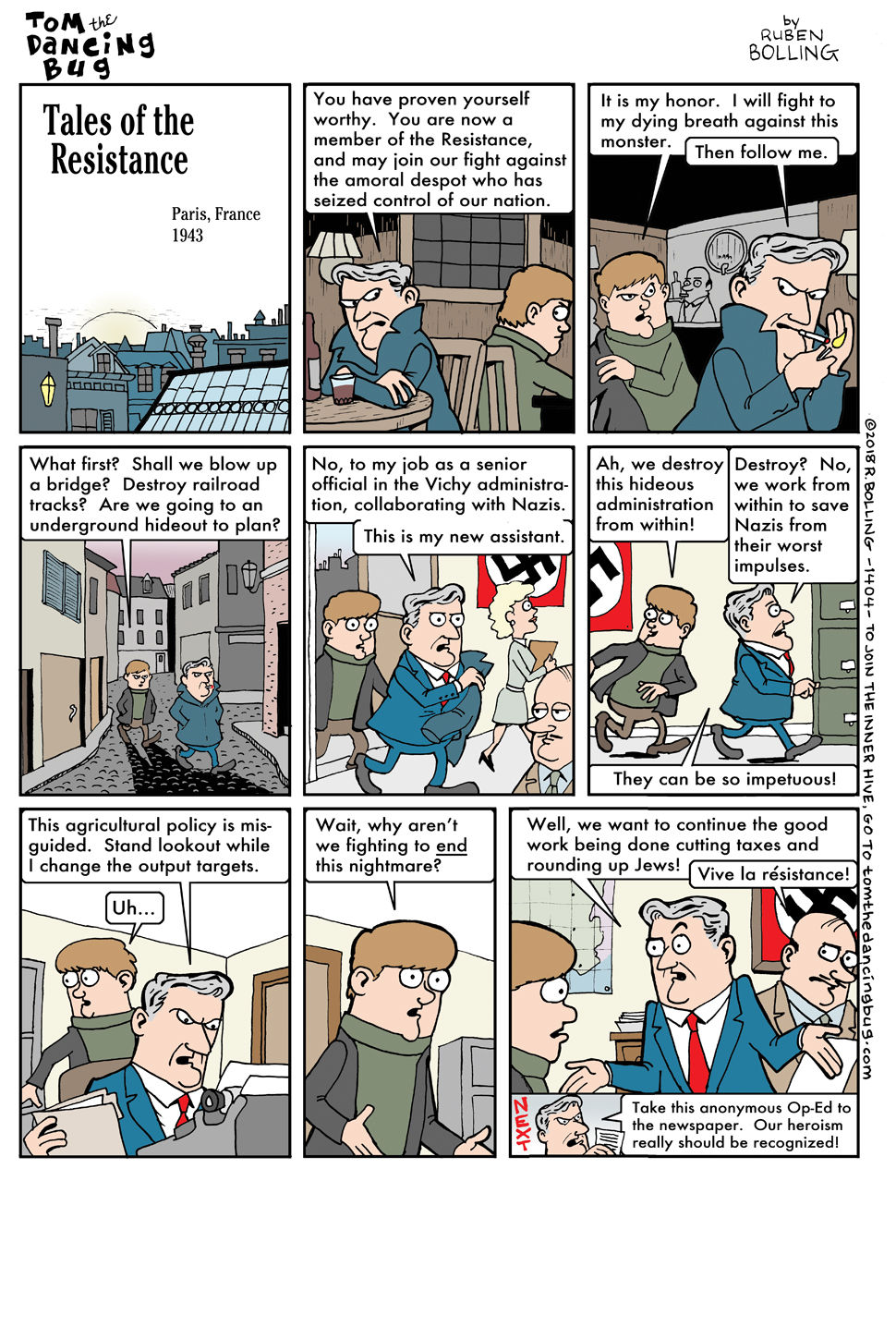Sunday, 16 September 2018 - 4:53pm
This week, I have been mostly reading comics:
- The ‘prosperity doctrine’ and neoliberal Jesusing, Scott Morrison-style — Van Badham in the Guardian:
He is a neoliberal and as treasurer he has governed neoliberally. Wage growth in Australia is stagnant, underemployment is rife. One of his earliest speeches was to condemn welfare recipients as the “taxed nots”, yet the policy he was most committed to pursue was the $65bn tax cuts for corporate Australia, including $17bn for the banks – the banks that are now recommended for criminal charges, from a banking royal commission Morrison described as a “populist whinge”. Who is such a person to lead this country? Well, if his own propaganda’s to be believed, a very holy man. Morrison spoke of his “personal faith in Jesus Christ” in his 2008 maiden speech, in which he also thanked pastors Brian Houston and Leigh Cameron of what has been described as a “money machine”, the Hillsong Church, for their “great assistance” to him. Citing Houston as “a mentor”, Morrison is a proud and public worshipper at the Horizon Church, which, like Hillsong, is Pentecostal, and similarly an “American-style mega-church ... where the gospel of prosperity is preached in an auditorium that can accommodate over 1,000 evangelicals” as described in a 2012 profile of Morrison in the Monthly.
- Voting Software — xkcd:

- The Non-University and the Manager — Binoy Kampmark at the Australian Independent Media Network:
The university manager is a born and dedicated philistine, and is one of the most important reasons why such institutions are not only failing students but failing staff. It is managers who, untutored but entirely self-interested, feather their nests while stomping on the innovative and shutting out the novel. The world of ideas is a world of offense, dangerous and to be avoided. […] The fundamental goal of management is not merely to control, monitor and mediate performance on the part of the neutered academic, an insistence that thought is obscene. (Thought, by its very act, cannot be managed). The academic must be restrained before the all-seeing-eyes of the brand label police and authoritarians.
- Seder — Saturday Morning Breakfast Cereal by Zach Weinersmith:
.png)
- Life after death — Frances Coppola:
Having seen my father die, I am more convinced than ever that we have only one life. Our job is to live it to the best, using our talents and abilities to the full, overcoming the constraints of our circumstances and our disabilities to the extent that we can. And because we are social creatures, living life to the full means helping others to make the best of their lives, too. Being truly human means giving the best that we have to offer without restraint, without counting the cost, and without any expectation of reward. Selfishness, that hoards what we do not need while those in need suffer, is inhuman. Those who deliberately seek to deprive others of the opportunity to make the best of their abilities and overcome their circumstances are evil beyond belief. Depriving another person of any hope of a better life is the most terrible thing you can do to them. When hope is gone, life is not worth living - and there is no other life that we know about. Ending someone's hope is tantamount to murder.
- The Cat Got Into Our Stash — Phil Are Go!:

- “Hothouse Earth” Co-Author: The Problem Is Neoliberal Economics — Kate Aronoff at the Intercept:
Coverage of the paper tended to focus on one of its more alarming claims, albeit one that isn’t new to climate researchers: that a series of interlocking dynamics on Earth — from melting sea ice to deforestation — can feed upon one another to accelerate warming and climate impacts once we pass a certain threshold of warming, even after humans have stopped pouring greenhouse gases into the atmosphere. The best chance we have for staying below that catastrophic threshold is to cap warming at around 2 degrees Celsius, the target enshrined in the Paris Agreement. That’s all correct and plenty daunting. Yet embedded within the paper is a finding that’s just as stunning: that none of this is inevitable, and one of the main barriers between us and a stable planet — one that isn’t actively hostile to human civilization over the long term — is our economic system. Asked what could be done to prevent a hothouse earth scenario, co-author Will Steffen told The Intercept that the “obvious thing we have to do is to get greenhouse gas emissions down as fast as we can. That means that has to be the primary target of policy and economics. You have got to get away from the so-called neoliberal economics.” Instead, he suggests something “more like wartime footing” to roll out renewable energy and dramatically reimagine sectors like transportation and agriculture “at very fast rates.”
- An anonymous Op-Ed from the World War II French Resistance — Tom the Dancing Bug by Ruben Bolling:
